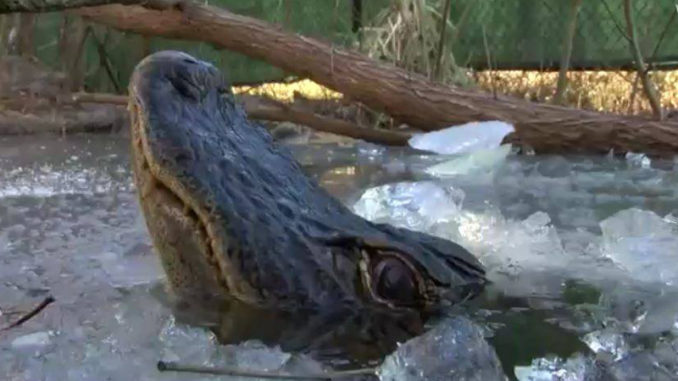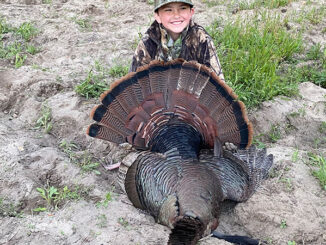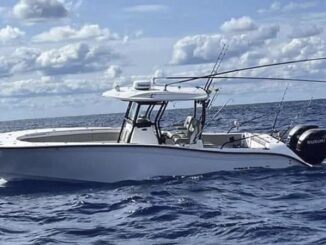
Frozen, but very much alive
Where do alligators go when the water all around them freezes? It’s not a question that comes up very often for the creatures. They typically live in areas that don’t get cold enough for the water to freeze. But it does happen sometimes, including recently just outside of Ocean Isle, N.C., where more than a dozen alligators reside in The Shallotte River Swamp Park.
Surely the alligators don’t want to expose themselves to subfreezing air temperatures. But would they rather be in the water when it freezes? It turns out, that’s exactly what they prefer. Park staff first observed the phenomenon last year when they noticed some gators frozen in place with their noses above the surface ice. And they saw the gators do it again last week when the mercury dropped. All 18 of the park’s gators allowed themselves to get frozen in. But they kept their nostrils above the surface, so breathing wasn’t a problem.
Check out the video provided by the park.
Contrary to popular belief, alligators do not hibernate in the winter. They do, however, bromate, which is somewhat similar. This means their body slows down to an almost sleep-like state. They usually bromate in holes they burrow in the mud. However, where gators live, it’s not uncommon for the coldest winter days to be interrupted by 60 or even 70+ degree days. That’s why it’s not at all unique to see gators out and about during winter.
The Shallotte River Swamp Park (910-687-6100) is just about the northernmost range of American alligators. It’s unknown if gators in other parts of the country react to freezing temperatures in the same way. Most alligators elsewhere probably never have to make that decision.
Next time you start breaking ice while duck hunting, be on the lookout. You just might see a frozen gator. How do you think a mallard would react to that?




